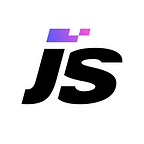Advantages of VR for Corporate Training and Education: VR Simulators for Huawei Case Study
At JetStyle, we have been developing VR-solutions since 2013. Our portfolio includes various projects, such as virtual tours to monuments and cities, VR games, marketing activities and corporate training simulators. Let’s look at the latter: in 2019, we created a VR app for Huawei, a leading global telecom company.
Huawei wanted to facilitate training of their 4G and 5G network installers. Generally, if a company needs to train employees, it has to shut down the station, which leads to huge profit losses. So, onsite training is always costly — and often unavailable.
Luckily, VR provides opportunities for making the process less risky and more efficient. JetStyle helped Huawei move to a new level of corporate training. During the production period, we faced a pretty tough deadline: the client wanted to show the technology at an annual industry conference that was taking place in 2.5 months.
We decomposed the task of creating a VR-tool for corporate training in the following way:
- Learning scenarios development
We studied the process of network installation in the smallest details. We used sketches, schemes and references provided by Huawei.
2. Modeling
Next, we created virtual copies of the tools and uniforms, so that all of them looked real in a virtual world.
We did 3D modeling in Blender. We recreated:
- gear (helmets, gloves, belts),
- tools (screwdrivers, pliers, tape),
- equipment (antennas, connectors, fuse boxes, cables, mounts),
- locations (rooftop and antenna mast positions).
Processing of cables in 3D was something special. Students use dozens of them during the installation process. We needed to make the virtual cables move in a natural way. Cables bend and hang under their own weight, while the algorithm is supposed to process the changes of their position in real time. It is too much workload for any computer.
How did we deal with the challenge? Along with modeling we programmed a part of the training scenario, and tested them together. We used primitive geometric objects (cubes, cylinders, cones, etc) as models. It helped us understand which of the cables needed to be processed and which could remain static.
3. Location production
We chose two locations for the practice: a rooftop and an antenna mast.
The locations were recreated using 360° photos: for the roof position, we used a drone to shoot a view from the building opposite the skyscraper you see in the reels and screenshots. For the pole position, we chose a place in the city; we took several pictures at different heights and put them together.
4. App programming (Unity)
We developed a simple intuitive application that would help employees understand and remember a sequence of actions. All actions are predetermined, each new step is highlighted.
VR simulators are available in two versions:
- for training classes — on HTC Vive, connected to a computer,
- for home training and presentations there is adapted for Oculus Quest. Perfect during self-isolation.
There are different modes: training & learning, knowledge check, multiplayer mode to practice with an instructor or a partner.
***
Huawei is constantly improving their employees’ qualifications, and with VR simulators, they have taken a big step forward in training personnel. See how it functions
Apart from providing a safe and fun place for corporate training, the simulators also worked as a spectacular PR action — lots of people wanted to try them at the industry exhibition:
Andrei Driga, Huawei manager:
“Dear colleagues, thank you so much for your work. The Summit attendees were delighted; our VR stand was among the most visited ones. We didn’t even have time to change the batteries — everyone wanted to try their hand at installation.”
Next time we’ll show how VR can improve training processes for warehouse workers at Huawei. Get in touch if you want to talk about creating your own VR simulator. Let’s schedule a brief call to discuss what we can do for you; drop us a line at orders@jet.style.
